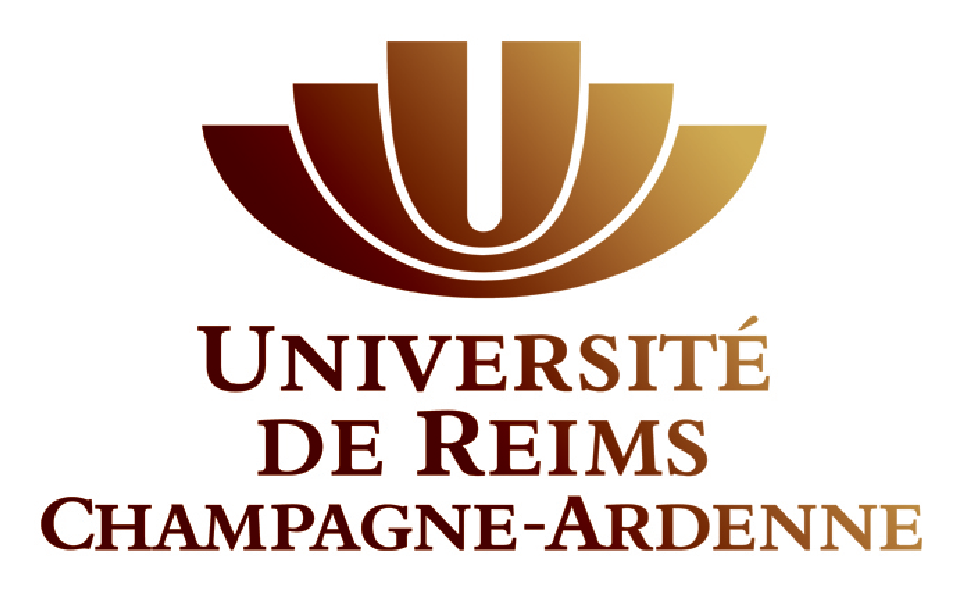|
IATEUR
IATEUR (Institut d'aménagement des territoires, d'environnement et d'urbanisme de l'université de Reims) (Regional Planning, Environment and Urban Development Institute of the University of Reims) is a teaching and research unit of the University of Reims. It was founded in 1971 by Roger Brunet, then a professor of geography. IATEUR combines three major foci: planning, development and environment in order to provide a framework for sustainable urbanisation Urbanization (or urbanisation) refers to the population shift from rural to urban areas, the corresponding decrease in the proportion of people living in rural areas, and the ways in which societies adapt to this change. It is predominantly the ... and heritage preservation. References Research institutes in France {{France-org-stub ... [...More Info...] [...Related Items...] OR: [Wikipedia] [Google] [Baidu] |
Roger Brunet
Roger Brunet (born March 30, 1931) is a French geographer. Life Born in Toulouse, Brunet attended the University of Toulouse, where he earned his PhD in 1965. He was subsequently professor at the University of Reims from 1966 to 1976, where he founded IATEUR. He was director of research at CNRS from 1976 to 1981, and from 1981 to 1984 served advisory and research roles in various French government ministries. In 1984, he founded the public interest group RECLUS, which he headed until 1991. Work In the early 1970s, Brunet emerged as a leader in a movement to give academic geography a bigger role in practical issues, such as urban planning policies and secondary-school geography curricula, and founded the journal '' L'Espace géographique'' in 1972. He was particularly associated with the development of the chorem, a cartographic approach to representing complex geographic information (including human geography) using a simplified set of spatial primitives. Chorems gained sign ... [...More Info...] [...Related Items...] OR: [Wikipedia] [Google] [Baidu] |
University Of Reims
The University of Reims Champagne-Ardenne (; URCA), also known simply as the University of Reims, is a public university based in Reims, France. In addition to the main campus in Reims, the university has several campuses located throughout the Grand Est region, in Châlons-en-Champagne, Charleville-Mézières, Chaumont, and Troyes. History Original university The University of Reims was established in 1548,Mark W. Konnert, ''Local Politics in the French Wars of Religion'', Ashgate Publishing, Ltd., 2006, p. 52. after the Cardinal of Lorraine met with Pope Paul III. The 'Collège des Bons-Enfants' Catholic school thus became a university, teaching the arts, theology, law and medicine. The university was closed in 1793 during the French Revolution, and reemerged in the 1960s. Modern university The Faculty of Science (1961), the Literary University College (1964), the University College of Law and Economics (1966), Reims University Technology Institute (1966), the Faculties ... [...More Info...] [...Related Items...] OR: [Wikipedia] [Google] [Baidu] |
Geography
Geography (from Greek: , ''geographia''. Combination of Greek words ‘Geo’ (The Earth) and ‘Graphien’ (to describe), literally "earth description") is a field of science devoted to the study of the lands, features, inhabitants, and phenomena of Earth. The first recorded use of the word γεωγραφία was as a title of a book by Greek scholar Eratosthenes (276–194 BC). Geography is an all-encompassing discipline that seeks an understanding of Earth and its human and natural complexities—not merely where objects are, but also how they have changed and come to be. While geography is specific to Earth, many concepts can be applied more broadly to other celestial bodies in the field of planetary science. One such concept, the first law of geography, proposed by Waldo Tobler, is "everything is related to everything else, but near things are more related than distant things." Geography has been called "the world discipline" and "the bridge between the human an ... [...More Info...] [...Related Items...] OR: [Wikipedia] [Google] [Baidu] |
Planning
Planning is the process of thinking regarding the activities required to achieve a desired goal. Planning is based on foresight, the fundamental capacity for mental time travel. The evolution of forethought, the capacity to think ahead, is considered to have been a prime mover in human evolution. Planning is a fundamental property of intelligent behavior. It involves the use of logic and imagination to visualise not only a desired end result, but the steps necessary to achieve that result. An important aspect of planning is its relationship to forecasting. Forecasting aims to predict what the future will look like, while planning imagines what the future could look like. Planning according to established principles is a core part of many professional occupations, particularly in fields such as management and business. Once a plan has been developed it is possible to measure and assess progress, efficiency and effectiveness. As circumstances change, plans may need to be m ... [...More Info...] [...Related Items...] OR: [Wikipedia] [Google] [Baidu] |
Economic Development
In the economics study of the public sector, economic and social development is the process by which the economic well-being and quality of life of a nation, region, local community, or an individual are improved according to targeted goals and objectives. The term has been used frequently in the 20th and 21st centuries, but the concept has existed in the West for far longer. "Modernization", " Westernization", and especially "industrialization" are other terms often used while discussing economic development. Historically, economic development policies focused on industrialization and infrastructure; since the 1960s, it has increasingly focused on poverty reduction. Whereas economic development is a policy intervention aiming to improve the well-being of people, economic growth is a phenomenon of market productivity and increases in GDP; economist Amartya Sen describes economic growth as but "one aspect of the process of economic development". Economists primarily focus o ... [...More Info...] [...Related Items...] OR: [Wikipedia] [Google] [Baidu] |
Environment (biophysical)
A biophysical environment is a biotic and abiotic surrounding of an organism or population, and consequently includes the factors that have an influence in their survival, development, and evolution. A biophysical environment can vary in scale from microscopic to global in extent. It can also be subdivided according to its attributes. Examples include the marine environment, the atmospheric environment and the terrestrial environment. The number of biophysical environments is countless, given that each living organism has its own environment. The term ''environment'' can refer to a singular global environment in relation to humanity, or a local biophysical environment, e.g. the UK's Environment Agency The Environment Agency (EA) is a non-departmental public body, established in 1996 and sponsored by the United Kingdom government's Department for Environment, Food and Rural Affairs, with responsibilities relating to the protection and enha .... Life-environment inte ... [...More Info...] [...Related Items...] OR: [Wikipedia] [Google] [Baidu] |
Sustainability
Specific definitions of sustainability are difficult to agree on and have varied in the literature and over time. The concept of sustainability can be used to guide decisions at the global, national, and individual levels (e.g. sustainable living). Sustainability is commonly described as having three dimensions (also called pillars): environmental, economic, and social. Many publications state that the environmental dimension (also called " planetary integrity" or "ecological integrity") is the most important, and, in everyday usage, "sustainability" is often focused on countering major environmental problems, such as climate change, loss of biodiversity, loss of ecosystem services, land degradation, and air and water pollution. Humanity is now exceeding several " planetary boundaries". A closely related concept is that of sustainable development, and the terms are often used synonymously. However, UNESCO distinguishes the two thus: "''Sustainability'' is often thought of ... [...More Info...] [...Related Items...] OR: [Wikipedia] [Google] [Baidu] |
Urbanisation
Urbanization (or urbanisation) refers to the population shift from rural to urban areas, the corresponding decrease in the proportion of people living in rural areas, and the ways in which societies adapt to this change. It is predominantly the process by which towns and cities are formed and become larger as more people begin living and working in central areas. Although the two concepts are sometimes used interchangeably, urbanization should be distinguished from urban growth. Urbanization refers to the ''proportion'' of the total national population living in areas classified as urban, whereas urban growth strictly refers to the ''absolute'' number of people living in those areas. It is predicted that by 2050 about 64% of the developing world and 86% of the developed world will be urbanized. That is equivalent to approximately 3 billion urbanites by 2050, much of which will occur in Africa and Asia. Notably, the United Nations has also recently projected that nearly all glob ... [...More Info...] [...Related Items...] OR: [Wikipedia] [Google] [Baidu] |
_-_Roger_Brunet.jpg)




